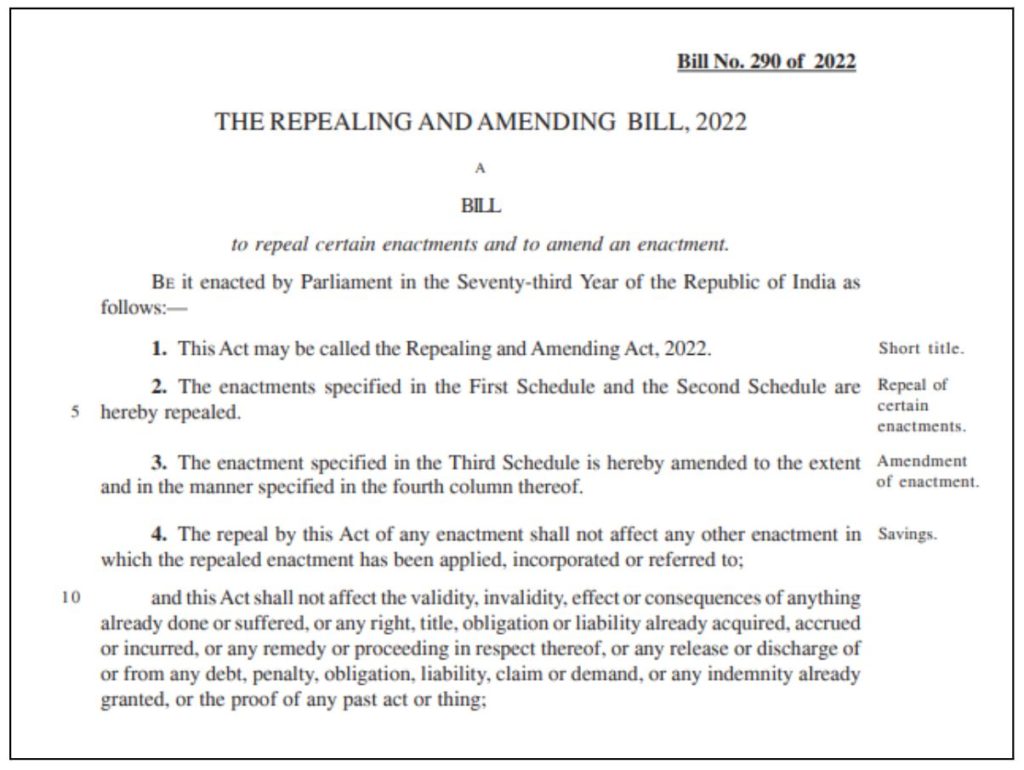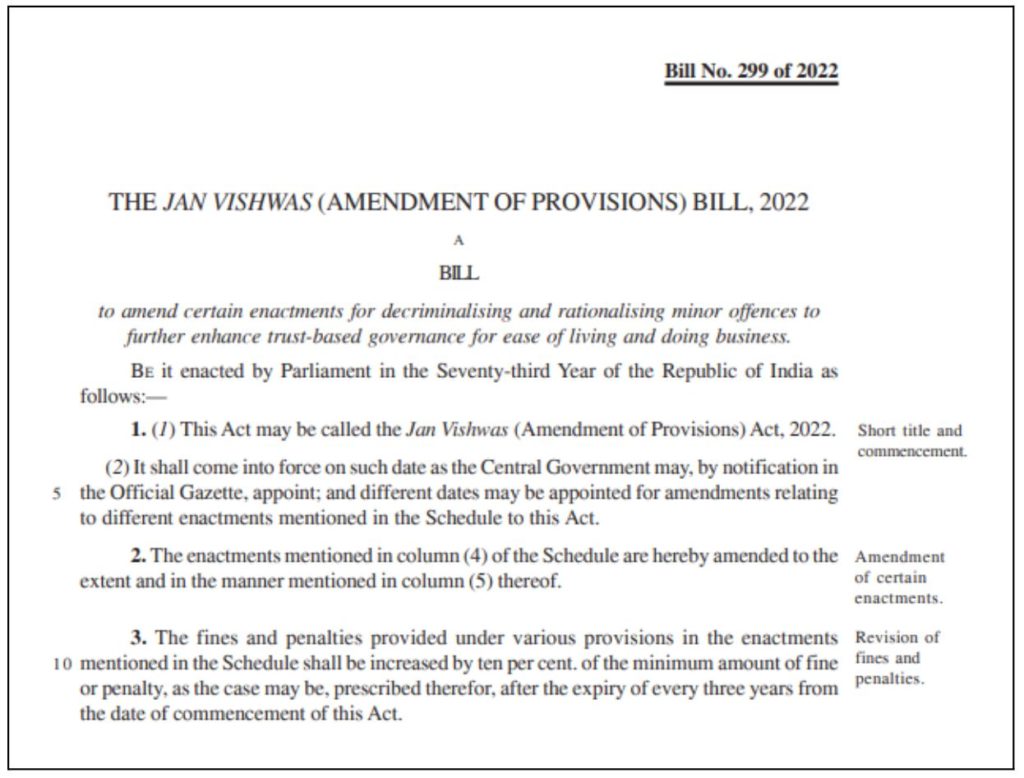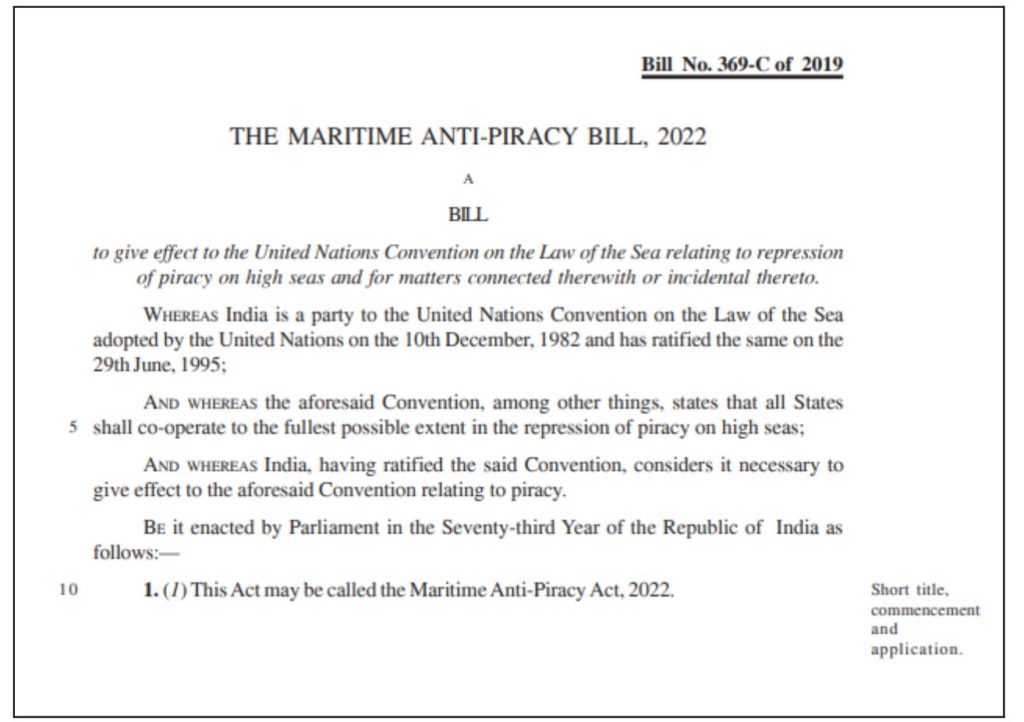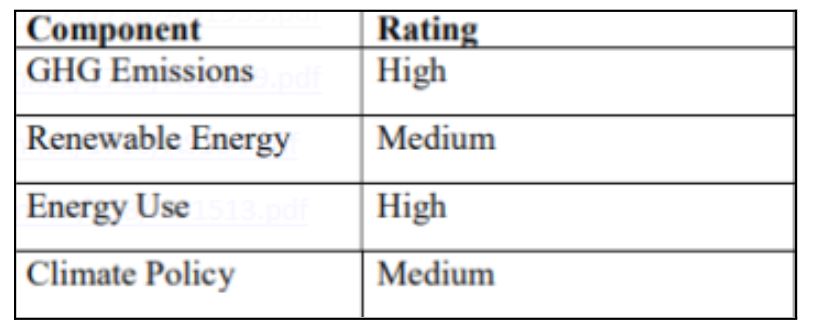The second week of the 2022 winter session of the parliament witnessed multiple disruptions with the opposition demanding a discussion on the India-China border situation. A detailed discussion on the issue of drug abuse in the country was also taken up during the second week. Multiple standing committees submitted reports during the week.
The 2022 winter session of the parliament began on 07 December and is expected to go on till 29 December 2022, with 17 sitting over 23 days. A total of 16 bills are likely to be taken up during the session. However, as per reports, the session is likely to end a week ahead of the original schedule, by 23 December 2022 because of Christmas and New Year festivities.
Key matters discussed
The second week of the session witnessed disruptions multiple times with the opposition raising demands to discuss the India- China border situation following the clash between Indian and Chinese troops in Tawang Sector earlier this month. The matter was raised almost every day in both the Houses for discussion and the houses had to be adjourned early on certain days because of the disruptions that followed. Amidst this, the concerns opposition raised with respect to India and China’s relations include India’s high trade deficit with China- about $ 73 billion, illegal Chinese mobile applications, Chinese aggression on the critical sea lanes in the South China Sea, among others.
The week also witnessed lengthy discussions on the problem of drug abuse in the country and steps taken by the government, in the Lower House. According to an MP from Kerala, over the past few years, the prevalence of drugs and illicit liquor has increased in the country. Alcohol is the most used psychoactive substance in India, followed by cannabis and opioids, with 16 crore, 3.1 crore, and 2.26 crore individual users, respectively. He stated that there were reportedly 1.58 crore children in the country that are addicted to drugs between the ages of 10 and 17 years. The huge inflow of marijuana and heroin is increasing the availability of drugs to even school students in Kerala. The Minister of State in the Ministry of Commerce and Industry mentioned that the problem in Punjab has assumed horrific proportions as compared to the rest of the States. Another MP cited figures from various reports. He cited a UN report which says that the number of drug users in India is likely to increase by 40% in 2022 as against 2009, a 2019 report by AIIMS which states that 160 million Indians consume alcohol in India, NCRB report stating that 21 deaths in India are attributed to the consumption of drugs every day. He mentioned that of these, 7860 people had committed suicide due to drugs.
The Union Home Minister Amit Shah responded that the Union Government, all the State Governments and Union Territories will have to fight the battle together. The entry of drugs will have to be checked from the borders, airports, and ports. He added that the Department of Revenue, Narcotics Control Bureau and all the states’ anti-narcotics agencies, and the Department of Social Welfare and Department of Health should be involved to tackle the problem. He also mentioned the initiatives taken by the government such as the NCORD Portal, National Integrated Data Base on Narco offenders, etc. to achieve the PM’s vision of a drug-free vision as part of Azadi Ka Mahotsav.
Apart from this, a Tripura MP’s resolution for holistic development of the agarwood sector, unethical practices in digital lending apps, and child welfare were a few other topics discussed in the Rajya Sabha.
Considering the increasing COVID-19 cases from across the world, the Union Health Minister stated in the Parliament that the Ministry was aware of the situation at the global level and advised states to increase genome sequencing for timely identification of the new variants of the coronavirus.
Bills taken up
The Repealing and Amending Bill 2022 was introduced in Lok Sabha by Union Law and Justice Minister Kiren Rijiju. The Bill seeks to repeal redundant and obsolete laws like The Telegraph Wires (Unlawful Possession) Act, 1950, The Insolvency and Bankruptcy Code (Amendment) Act, 2018, The Personal Laws (Amendment) Act, 2019, The Supreme Court (Number of Judges) Amendment Act, 2019, The Salary, Allowances and Pension of Members of Parliament (Amendment) Act, 2020, etc. which are no longer relevant.

The Jan Vishwas (Amendment of Provisions) Bill, 2022 which seeks to amend certain enactments for decriminalising and rationalising minor offences to further enhance trust-based governance for ease of living and doing business was introduced in the Lower House.

The Maritime Anti-Piracy Bill, 2022 enables Indian authorities to take action against piracy on the high seas. While the Bill was discussed in the parliament during the first week, both the Houses passed the Bill in the past week. The Bill was initially introduced during the Winter Session in 2019.

The Appropriation (No.4) Bill, 2022 & Appropriation (No.5), 2022, which were passed in the Lok Sabha in the first week were discussed and passed in the Rajya Sabha in the past week. These bills were introduced and passed to seek additional funds from the Consolidated Fund of India.
The Constitution (Scheduled Tribes) Order (Third Amendment) Bill, 2022, The Constitution (Scheduled Tribes) Order (Fourth Amendment) Bill, 2022 and The Constitution (Scheduled Tribes) Order (Fifth Amendment) Bill, 2022 were passed in the Lok Sabha.
Committee reports tabled
The Standing Committee on Petroleum & Natural Gas tabled the Seventeenth Report on ‘Review of Implementation of Compressed Bio Gas (CBG) (SATAT)’. As part of an initiative under the National Biofuel Policy, 2018, the Ministry of Petroleum & Natural Gas launched the Sustainable Alternative Towards Affordable Transportation (SATAT) initiative in October 2018, for promoting the use of Compressed biogas (bio-CNG) in the CNG (transport) and PNG (Domestic) sector of City Gas Distribution (CGD) supplies of natural gas. The report points towards the slow pace of the scheme and the lack of clarity.
Action Taken by the Government on the recommendations contained in the Thirteenth Report of the Standing Committee on Housing and Urban Affairs (2021-2022) on, ‘Implementation of Metro Rail Projects – An Appraisal’ was presented by the Standing Committee on Housing and Urban Affairs (2022-2023). 16 out of 21 recommendations put forth by the committee were accepted by the Government.
A Parliamentary panel on finance laid in the Lok Sabha a report on ‘Anti-Competitive practices by Big Tech Companies’. The report highlights the anti-competitive practices of big tech companies and calls for an ex-ante framework legislation. It also calls for enhancing the competitive law in the country to deal with the anti-competitive behaviour in the digital markets and strengthening the Competition Commission of India.
A report on the ‘Review of the functioning of National Institutes established for different types of disabilities’ was presented in the Lok Sabha. In the report, the committee expressed disappointment over fewer faculty members in most of the Institutes in comparison to their sanctioned strength.
The committee on Welfare of Other Backward Classes released reports on measures taken to secure the representation of the community in employment and welfare in Canara Bank, GAIL, AAI, and BSNL & MTNL.
The Committee On The Welfare Of Scheduled Castes And Scheduled Tribes tabled reports on ‘Reservation for Scheduled Castes and Scheduled Tribes in Public Sector Oil Companies and Status of allotment of Petrol and Gas agencies (CNG, PNG, LPG etc) and other related Agencies/Units to Scheduled Castes and Scheduled Tribes’, Action was taken reports on ‘Reservation of Scheduled Castes/Scheduled Tribes in Public Sector Banks/Financial Institutions/Reserve Bank of India and credit facilities and other benefits being provided by such Institutions/Banks to the Scheduled Castes/Scheduled Tribes with special reference to State Bank of India’ and ‘Reservation for Scheduled Castes and Scheduled Tribes in Central Public Sector Undertaking with special reference to Power Grid Corporation of India Limited’.
Few Questions & Responses
- In response to a question on the migration of youth from northeastern states in search of jobs, the ministry responded that it has no data in this regard for the last three years. However, as per the Census 2011, there are 1,52,05,214 migrants in the Northeast Region (NER) states. Of these, 93.80% (1,42,62,490) are intra-state migrants and only 6.20% (9,44,050) are inter-state migrants. The top three states to which inter-state migration from the NER States occurs are West Bengal (39.56%), Delhi (7.66%) and Maharashtra (7.4%).
- As per the Climate Change Performance Index 2023 report released recently, India had secured the 8th position. The rating of India in various components of CCPI is as follows:

- Ministry of Finance stated that the Centre released ₹ 17,000 crores to States on 24 November 2022 from Consolidated Fund of India against the pending GST compensation for the period April-June’2022 despite the shortfall in compensation cess collection into compensation Fund to assist the States in managing their resources.
- In another response, the ministry stated that as per RBI data, public sector banks have recovered an aggregate amount of Rs. 4,80,111 crores from NPAs, including recovery of Rs. 1,03,045 crores from written-off loans during the last five financial years.
- With respect to Global Hunger Index, the Ministry of Women and Child Development stated in a response that Global Hunger Index (GHI) does not reflect India’s true picture as it is a flawed measure of ‘Hunger’. It noted that the index should not be taken at face value as it is neither appropriate nor representative of hunger prevalent in a country. Out of its four indicators, only one indicator, i.e., undernourishment, is directly related to hunger.


